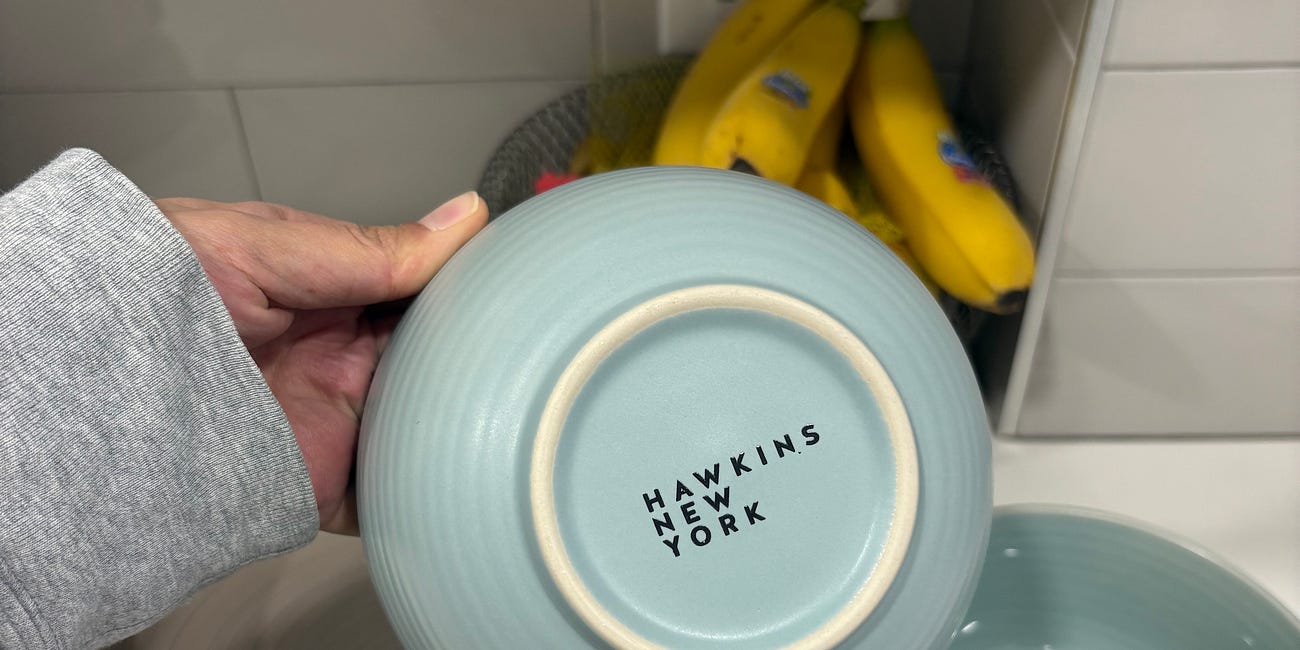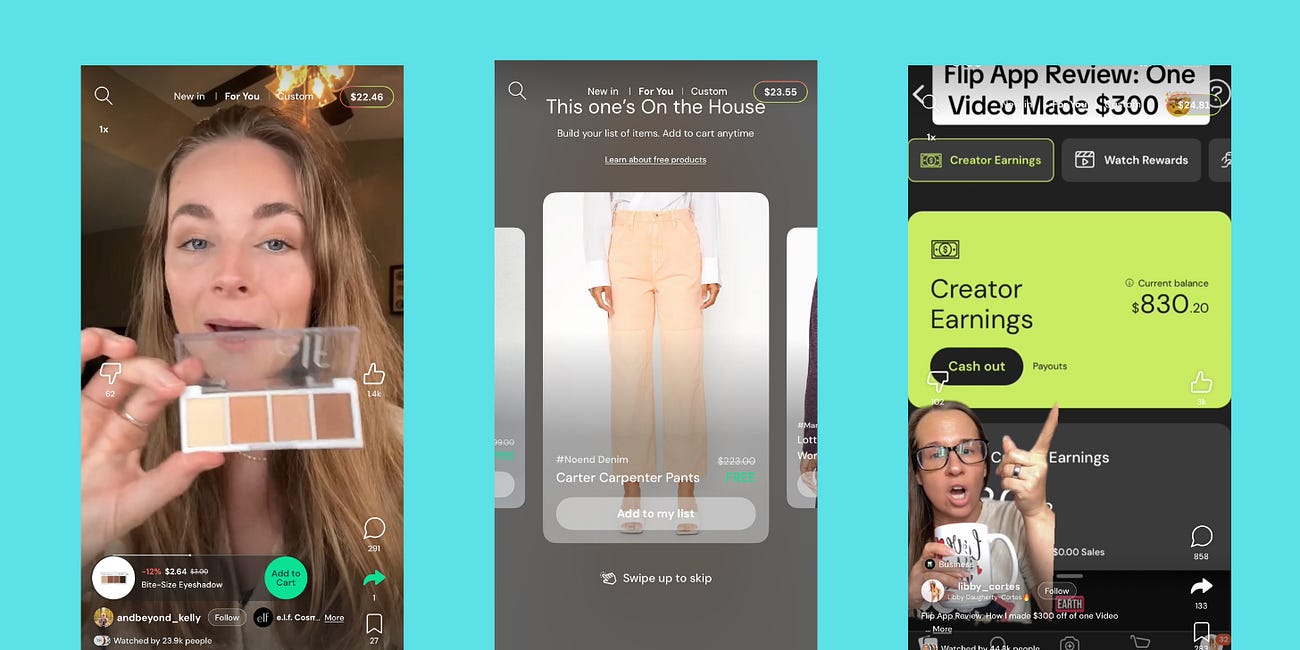If you’re new here, welcome to Delivered, a newsletter covering the intersection of content & commerce. If you haven’t already, subscribe to get all posts straight to your inbox.
Hello! I initially intended for today’s newsletter to be a continuation of my last post on Reddit for affiliate publishers, but there were too many good headlines from the content & commerce space in the last week, and I didn’t want them to go stale while I was working on that piece. So today is another round-up of stories that I think are worth sharing, discussing, and sending to your colleagues. I’ll have more on Reddit in the next newsletter.
When one social commerce product dies, another launches…
Amazon recently sunset Inspire, its TikTok-like shopping product that featured a personalized feed of shoppable videos from influencers and brands. I respect Amazon for a) always being down to experiment with social commerce (it’s done its fair share of live shopping experiments) and b) not hesitating to shut down products that don’t perform. We love to hate it but it’s smart and nimble. A spokesperson for Amazon acknowledged that customers look for inspiration and product recommendations in social feeds instead of on-site, and the company is focusing its social commerce efforts around off-platform integrations instead.
A week after Amazon announced the end of Inspire, affiliate mega-platform LTK relaunched its app with the goal of taking it from a shopping-specific feed to a more general entertainment social platform, with shopping integrated throughout. So yes, it’s trying to become like TikTok by combining entertainment, community, and shopping. I’m honestly not that optimistic about the future of a lifestyle app for LTK. I can see why they think it’s a good idea—they have the influencer and brand relationships, and if those influencers are sharing other parts of their life on Instagram and TikTok, why not encourage them to share on a platform LTK owns, where the majority of users are primed to shop. However, I think LTK is underestimating how hard it is to make a habitual entertainment app. You can have all the features you want, but if you can’t get people to stay in the app and come back repeatedly, it’s not going to work. TikTok works so well because it has a diversity of content and a very good algorithm. LTK needs both of those to be competitive. But we shall see!
A few friendly reminders that big tech is everywhere in affiliate…
Fashion journalist
wrote about how Amazon fuels the dupe economy but forbids creators who link to such items from calling them “dupes.” Amazon is obviously covering its bases legally, but its communication skills are lacking. The piece gives you a hint of just how much it controls affiliate content, especially with influencers who may lack journalistic standards.And then there’s Google. The Wall Street Journal wrote about how the search giant de-indexed Forbes Vetted, CNN Underscored, and other affiliate arms of news media sites for violating its “site reputation abuse” policy. The TL;DR is that Google recently unveiled a policy that punishes publishers who publish content created by a separate entity, even if that content was created with the publisher’s oversight. It’s become a not uncommon practice over the last few years for established publications to partner with agencies to create SEO-driven affiliate content in high yield categories where the publisher doesn’t have in-house expertise, like personal finance or mattresses. Google caught on, announced this new policy, and penalized publishers by de-indexing their content. I do know of a few publishers who still use third-party agencies and haven’t seen their content de-indexed, so whatever Google’s doing, it’s not equal. Don’t love that.
According to WSJ, Forbes Vetted content started reappearing in search results after the site removed articles written by all freelancers, suggesting that the new policy equates content written by an individual freelancer who has a relationship with the publication to content written by someone who’s employed by one of these content agencies. They are quite different. Hiring out individual freelancers with subject category expertise is a way for publishers to ensure that their content follows E-E-A-T best practices, which, as discussed in my last post, is integral to how Google ranks articles. Affiliate publishers are in a bind as so much of their high-converting traffic comes from search, but ending relationships with freelancers to get back into Google’s good graces isn’t a sustainable long-term play.
The brands are coming to Substack…
wrote about the nascent trend of brands starting their own Substack newsletters and what they should consider before jumping in. The key takeaway to me is that a brand should think of Substack as a form of blogging, not as a replacement to traditional email marketing. It’s no surprise that Tory Burch, a brand that was known for its blog back in the heyday of brand blogs (2015? 2016?) already has an established Substack.And finally, consumers are getting tired of all that marketing…
The New York Times wrote about shoppers who are resisting the constant flood of marketing on social media and through phone alerts. I love shopping and the business of it but I can relate! I often get overwhelmed with the barrage of shopping messaging in my feeds, texts, and emails. I haven’t deleted my social accounts, but I do try to avoid following brands and influencers from my personal Instagram account; instead I have a separate one dedicated to fashion & home decor that I go to when I’m feeling shoppy.
Ok, that’s all for today! Here are some past posts you may have missed:
The app that pays you to watch shopping videos
If you’re new here, welcome to Delivered, a newsletter covering the intersection of content & commerce. If you haven’t already, subscribe to get all posts straight to your inbox.






